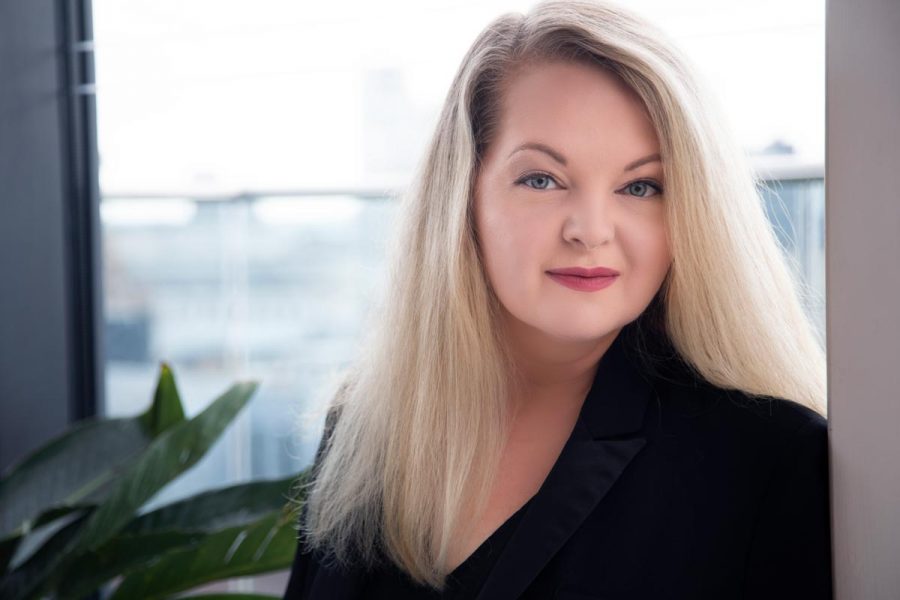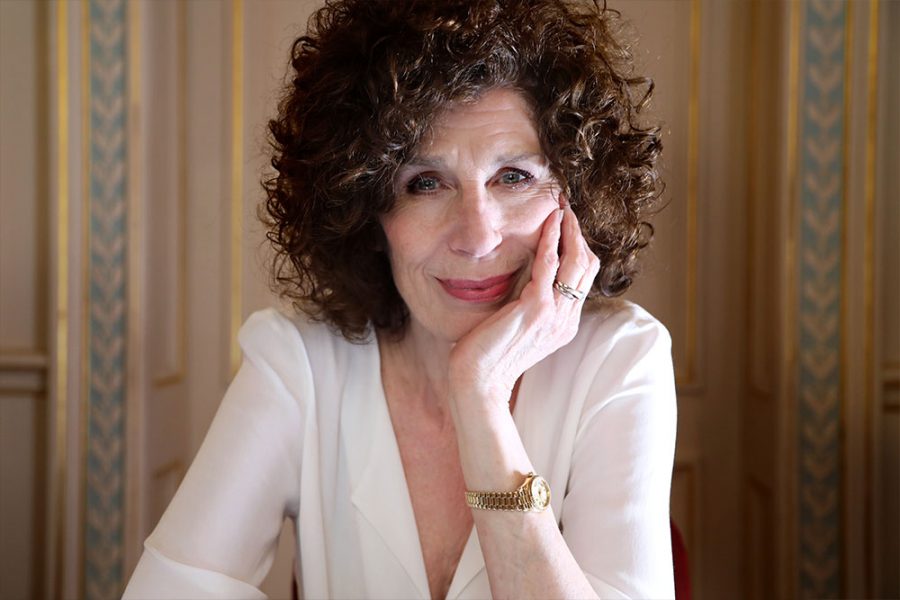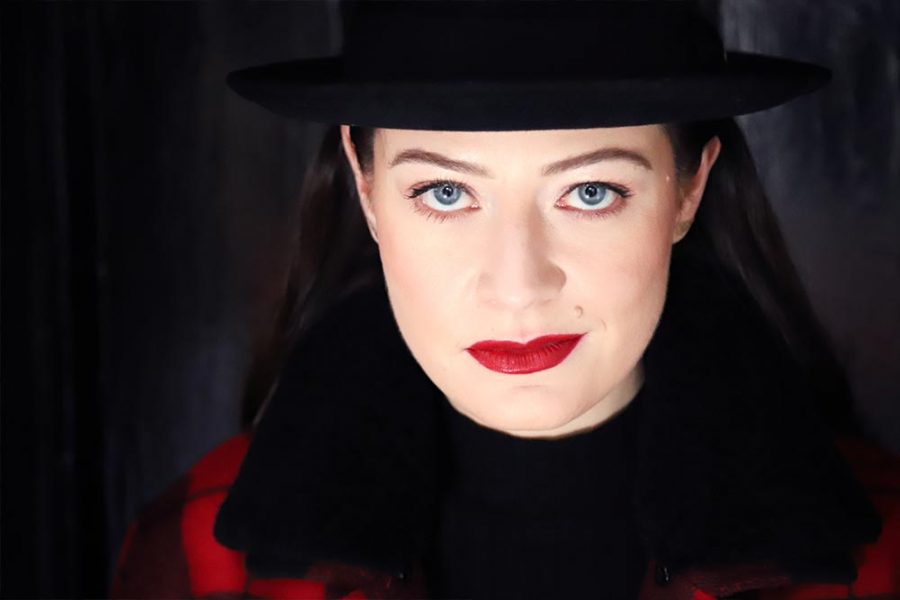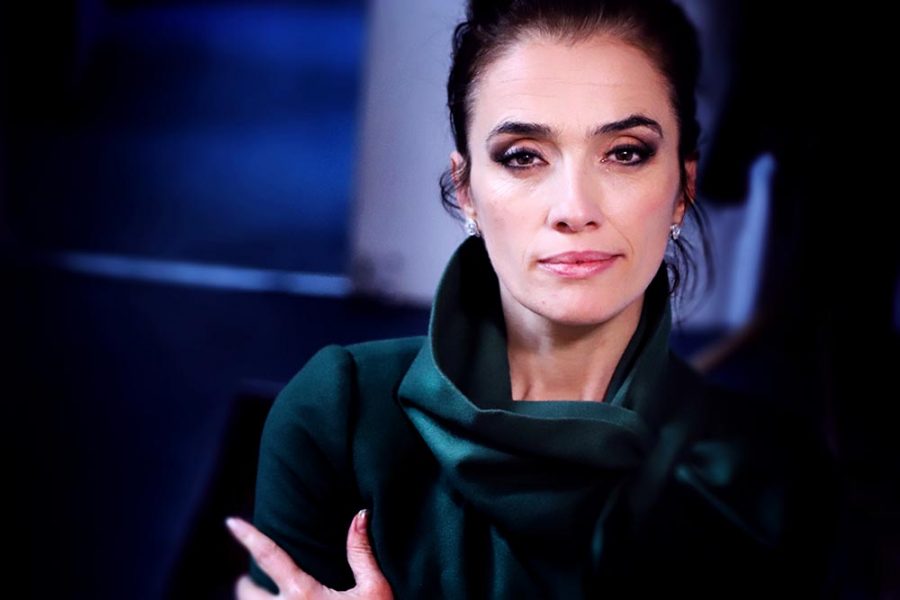Talking ‘Trouser Roles’ with Sharon Carty

April 2016
Words by
Emer Nestor
Photos by
Frances Marshall
Irish mezzo-soprano Sharon Carty owes her early training to the Royal Irish Academy of Music and the Opera School of the University of Music and Performing Arts, Vienna. She made her stage debut as Maddalena in Verdi’s Rigoletto at the Anna Livia International Opera Festival, Dublin, in 2008 and went on to perform at the Reinsberg Festival and the BOV Opera Festival in Malta.
Her talents were brought to the attention of Bernd Loebe in 2010 and she was subsequently invited to join the Opera Studio of the Frankfurt Opera. Since then, her career has gained momentum with appearances in critically-acclaimed productions including Hänsel und Gretel, Don Carlos, Medée, Die Zauberflöte, The Barabbas Dialogues, Bastien und Bastienne, L’étoile, Dido and Aeneas, Oscar und die Dame in Rosa, and Nixon in China, to name but a few. Carty is an active recitalist and enjoys a lively presence on the concert hall circuit. She was recently appointed as an ambassador for Opera Theatre Company on their ‘Opera Hub’ programme. The Celbridge native chats to us ahead of her appearance in the title role of Handel’s Ariodante with OTC.
To date, my personal highlight there was singing Dido in a revival of Barrie Kosky’s incredible staging of Dido and Aeneas."

Take us back to your stage debut as Maddalena in Verdi’s Rigoletto in 2008.
Maddalena came about following my work with the late Bernadette Greevy in her annual masterclasses. She really took me under her wing during those two years and put a tremendous amount of faith in me. She cast me in small parts in Riders to the Sea and La Campanella (Anna Livia Fringe Festival) in 2007, while I was still teaching full-time. It was quite a risk for her to cast me in Rigoletto the following year—I had only left my teaching job and completed one year of full-time training in Vienna—I really was a nobody compared to the other three singers involved in the famous quartet of Act IV. Luckily, it went well. I’ll always be so grateful to her for believing in me and giving me that chance.
I’ll never forget getting the phone call from the festival manager to tell me she had passed away…it was devastating. The last thing she ever said to me was, “we’re all very proud of you in the Anna Livia office”. I feel very lucky to have had her in my corner.
How did the opportunity to join Oper Frankfurt come about?
One of my teachers in Vienna phoned me during semester holidays in Ireland to tell me about an audition for a summer academy in Giessen, near Frankfurt, and that I absolutely had to apply. I only had 2 of the usual 5 audition arias up to scratch, so I brought along ‘Siebel’ and ‘Ruggiero’, intending to just use it as audition practice, but they took me as the mezzo on the course—one of 10 singers in total. There were several performances at the end of the course including a competition. Its jury members comprised of several intendants from neighbouring opera houses. I was awarded the third prize that night, and Bernd Loebe, the intendant in Frankfurt, approached me afterwards and told me there was a place for me on their young artists’ programme, should I want it. At the time I had an audition coming up for a fest job in Freiburg (where, funnily enough, I now work regularly as a guest), and the idea of an opera studio didn’t appeal to me. Having started so late, I saw it as a continuation of being a student, and I would have preferred to start as a full ensemble member in an opera house so that I could “catch up” as quickly as I could.
Luckily for me, Bernd Loebe was very insistent and encouraged me to come to Frankfurt, which I did. I’ll always be very grateful to him for that. After doing lots of lovely small and medium roles in the opera studio, I’ve been lucky enough to be invited back several times as a guest. To date, my personal highlight there was singing Dido in a revival of Barrie Kosky’s incredible staging of Dido and Aeneas.
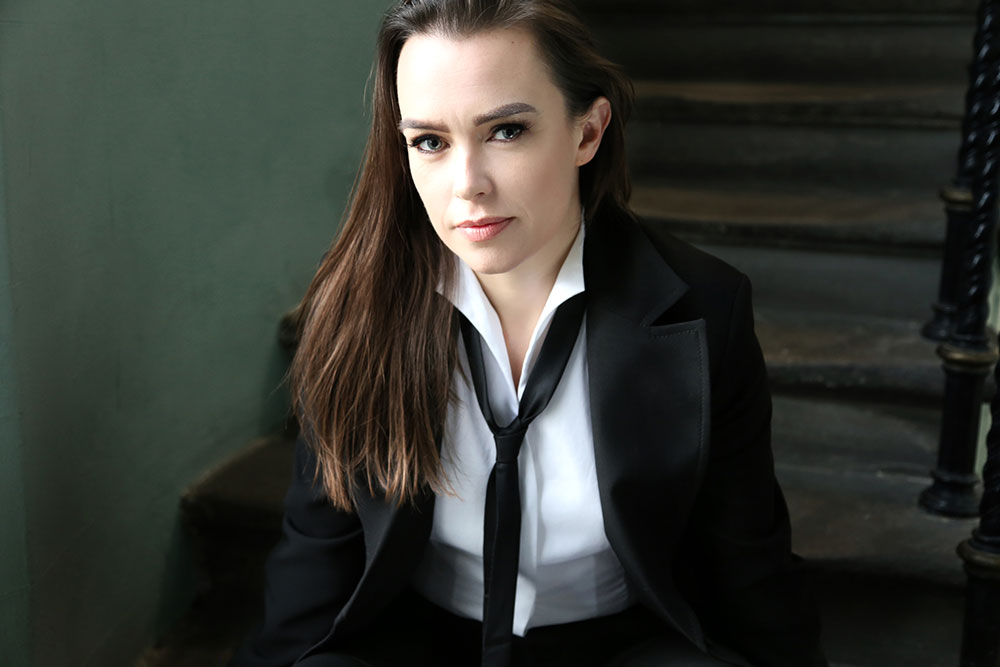

What has been your favourite performance so far?
That’s a difficult question…there have been so many! Probably the most exciting performance was in 2014 when I sang the role of Oscar in the world premiere of Oscar und die Dame in Rosa at Theater Freiburg. It was an honour to be the first person to sing something completely new, with the composer (Fabrice Bollon) conducting, the author of the book on which it was based (E. E. Schmitt) in the audience, and the librettist (Clemens Bechtel) directing. I also need to mention my first appearance with the Irish Baroque Orchestra. It was a 3-concert tour of Handel’s Messiah with conductor Roy Goodman, and the Resurgam choir. Being a huge fan of the IBO, I was so incredibly excited to work with the ensemble. I will never forget Roy’s infectious enthusiasm and sheer joy for the music. There was no ego. He conducted the entire thing from memory, and just trusted every single instrumentalist and singer so completely. It remains my most fulfilling musical experience so far.
Debuting with new opera companies can be an exciting, and sometimes daunting, experience — how do you deal with such an important aspect of your profession?
That’s exactly it—exciting and daunting! There are always a couple of days at the beginning of a project where everyone is getting to know each other before things settle fully. The atmosphere can vary hugely from project to project, depending greatly on the mix of personalities involved. From a singer’s perspective, the ideal situation is created through open dialogue between director, conductor, singers, and dramaturgy, during the rehearsal process. I’ve been lucky, as the majority of the operas in which I’ve featured have been hugely collaborative and positive environments to work in, and if that’s not entirely been the case, I’ve always been very lucky to have either a fantastic assistant director and/or more experienced singer colleagues who have been able to offer useful advice.

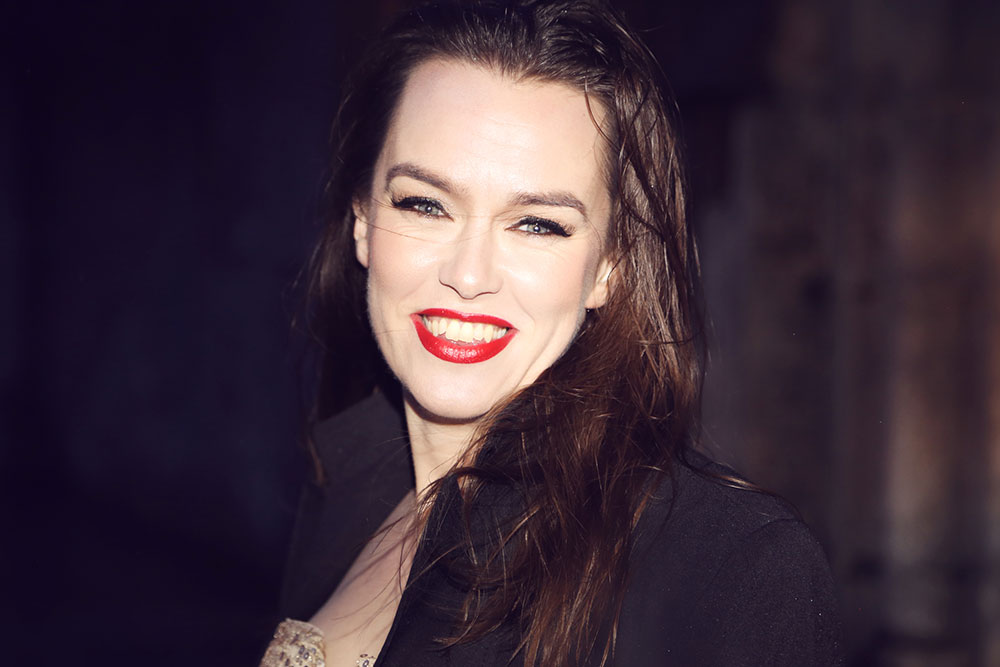


...having a technique that you can depend on, to react in more or less the same way, whatever the external conditions, is important."

As a touring performer, what are your top tips for looking after your voice?
Absolutely first on the list is a solid technique. When you’re away from home a lot, there are fewer factors you have control over, from sleep (I always bring my own pillow with me) to diet, to schedule, so having a technique that you can depend on, to react in more or less the same way, whatever the external conditions, is important. I’m so lucky to have Alison Browner as my teacher. I’ve worked with her for the last 5 years since being in Germany and she’s been a wonderful mentor, as well as teacher and friend. She’s basically made my career possible through her wonderful teaching.
Otherwise, adequate sleep, drinking enough water, and getting exercise is so important. You also have to ensure that you don’t over-sing on a given day. Every singer I know has an arsenal of natural remedies for colds and sniffles too. My pack, that usually goes in my suitcase, includes tea tree oil, sea salt nasal spray, high dose vitamin C, a handheld nebuliser with a mineral salt solution, various lozenges, throat coat tea, and I’ll usually buy ginger, turmeric, honey and lemons to make tea wherever I am.
Tell us about your involvement with the OTC Opera Hub programme.
I’m now in my second season as an Opera Theatre Company Opera Hub artist. The programme was launched in September 2014 to champion and showcase new operatic talent in Ireland, as well as giving professional opportunities to established artists to realise projects of their own design in conjunction with OTC. Ariodante is one such project—in partnership with MusicTown Festival, the Arts Council and Dublin City Council. Each artist works with the company in an ongoing way, realising a diverse range of work. It’s been a wonderful experience so far. I’ve been involved in the planning of both Handel projects, and I’ve gained valuable experience in my development as an artist.
This April 15 you are set to take on the title role in Handel’s Ariodante — what do you enjoy most about such trouser roles?
What’s not to love?! On a purely practical level, they’re by far the more suitable roles for my appearance, vocal colour and tessitura. I adore singing baroque music, and most of the big trouser roles are in the operas of Handel and his contemporaries. So it’s a world in which I feel very at home technically-speaking. Handel’s operas have such wonderful arias for trouser-role mezzo. I’m particularly looking forward to singing ‘Scherza infida’ and ‘Dopo notte’—two of the hero’s well-known and very beautiful arias. Dramatically, as a mezzo, there’s such a broad palette of character types for us to sing anyway, but the male mezzo roles range from playing a small child to a cheeky teenager, to the chivalrous romantic lead, to the leader of an army…the list is long. I also find it really freeing to play a man on stage—you get to use so much fantasy in building the character of a guy, stepping out of your own skin and exploring a point of view that you otherwise wouldn’t ever have the opportunity to.
Your ‘Witches, Bitches, and Britches’ concert sounds interesting — what’s it all about?
The expression “witches, bitches and britches” is often given to the roles typically sung on stage by mezzo-sopranos. This programme is a slightly tongue-in-cheek take on that and features the well-known virtuosic aria ‘Son qual nave ch’agitata’, written for the famous castrato Farinelli, as well as some other beautiful trouser-role arias by composers such as Nicolas Porpora, Vivaldi and Handel. The concert also features music from Charpentier’s beautiful setting of the Greek tragedy Medea (a witch who, in an act of revenge for her husband’s infidelity, butchers their two children after murdering his new lover; you could say she ticks two of the three categories in the programme title!), and some other Handel anti-heroines. The project has also allowed me to do lots of interesting research into the repertoire, and acquire experience in transcribing scores and parts from facsimiles of manuscripts. I’ll be joined by a period string ensemble, led by Claire Duff, and David Adams will direct from the harpsichord. We’re very fortunate to have two beautiful venues in which to perform this programme: the first will be on 13 May at the Aula Maxima in NUIG—a co-produced concert as part of the 21st Galway Early Music Festival and Music for Galway’s ‘On wings of song’ series; and the second concert will take place in my hometown, Celbridge, in the magnificent Long Gallery at Castletown House, on 4 June.
With such an abundance of fine young singers currently powering their way through the echelons of the greater operatic cosmos, is it difficult to get ‘good’ gigs, and do you find yourself saying “yes” to everything, or are you at the stage where you can be a bit more discerning about your choices?
I think I’ve been quite fortunate. My unconventional route into singing meant I was always in a position to be relatively discerning about my choices. I went from quite a concentrated period of study in Vienna, which I funded with savings from my 4 years of teaching second level, to 2 “safe” years as a fixed member of an opera house opera studio programme. I was earning a regular wage, learning the ins and outs of the German system, and gaining valuable stage experience in small and medium roles. Now I’m being asked to sing the repertoire that I adore (Mozart, Bach, Handel, Schubert, etc…), and that suits me best vocally. Luckily, next season will include a reprisal of one of my Mozart roles, a debut of a new Handel role, and Bach and Handel in concert.
There’s a misconception out there that the only ‘good’ gigs are those that pay the highest fees. Of course, as a freelancer, you have to make sure that you can pay the bills, but once that is taken care of, I’m more motivated by whether or not a project will fire my imagination and help me develop as an artist. At the moment, that includes getting to sing repertoire that I might not otherwise have a chance to do, or working with colleagues who I admire and respect as musicians, and with whom I enjoy working.
Do you have a party piece?
No not really! Professionally, there are things I love to sing (generally with lots of coloratura!). I’m too self-conscious though to be the one leading a singsong at a party, and to my shame I’ve never done Karaoke! It’s on the bucket list though.
Now I’m being asked to sing the repertoire that I adore (Mozart, Bach, Handel, Schubert, etc...), and that suits me best vocally."

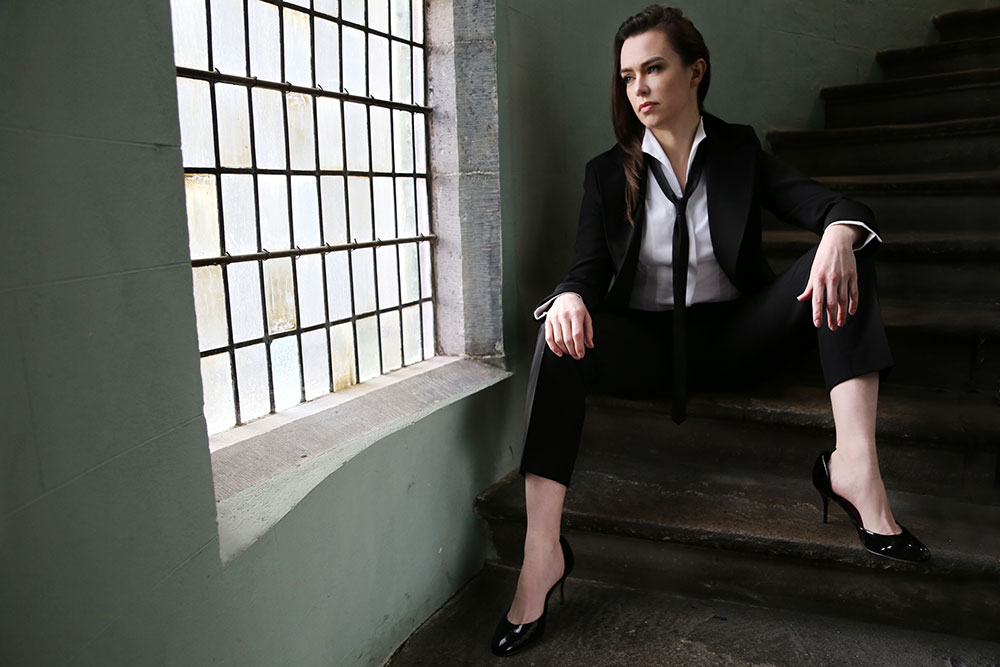


How do you feel about the traditional concert gown attire, and where do you source your dresses?
I love it! In what other job could you legitimately dress up in eveningwear on a regular basis!!! For concerts, it’s almost like a uniform, and I definitely think audiences hear with their eyes as well as their ears. I have to say TKMAXX is brilliant for the occasional bargain; otherwise I tend to just keep an eye out when I’m travelling. In Dublin I often pop into Folkster—they have a great selection of reasonably priced eveningwear, and I’ve picked up some nice dresses in Frankfurt and Vienna. My amazing and very stylish mum is also brilliant for keeping an eye out. I’ll often get a WhatsApp message from her with a photo of a dress, the price and “you interested?” underneath!
Appearance plays such an important role in performance these days and stage make-up can be quite harsh on your skin — how do you look after that side of things?
I’m lucky because I haven’t had any problems with my skin since my teenage years, and actually the make-up that they use in opera houses now is regular make-up—not the oil-based stage make-up that we would have had for school musicals. So thankfully I’ve never had a problem with reactions to anything.
I’m probably not strict enough with my diet…I like my desserts! I manage to eat healthily in fits and starts. I recently bought a lightweight smoothie-maker, which I can bring with me on tour, so that makes getting things like green veg into you easier! Make-up and skincare-wise I think, like most Irish women, I love the Urban Decay ‘Naked’ palettes—they’re so handy for day/evening and concert make-up. My make-up brushes are from Make Up Forever in Dublin. They’re fantastic quality and reasonably priced…I love going in there for a browse! My favourite foundations at the moment are Armani ‘Satin Silk’ and La Roche Posay ‘Toleriane Teint’.
If you could duet with your pick of the best, who would it be and why?
Without a doubt, it would be my friend and countertenor, Xavier Sabata. We first worked together on Oscar und die Dame in Rosa in Freiburg (2014). He was the Lady in Pink, and I was Oscar. I admire his beautiful voice, his commitment as an artist, and his intelligence and compassion as a performer. He’s also great fun and I’ve learned so much from him since I’ve known him. His CD Bad Guys is a ‘must have’!
Is there a 5-year plan?
I did make a 10-year plan about 8 years ago when I decided to leave teaching. One of the longer-term goals on that list was to sing at the Gaiety [Dublin], but I was able to tick that off within a year when I sang Maddalena! I do think that the best plan is a flexible one. For me, looking forward, there are a few recording projects which I hope to realise within the next 3-5 years, and of course there’s a list of roles that I’d like to perform, including Sesto, Idamante, and Cenerentola, among others—hopefully leading up to Charlotte and Octavian a few years down the line. Ariodante was at the very top of the list of dream roles, so the concert performance on 15 April will be very special for me!
To find out more about Sharon Carty see: www.sharoncarty.com
All images displayed in this article are subject to copyright.
Share this article


